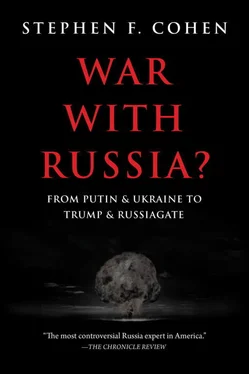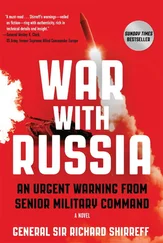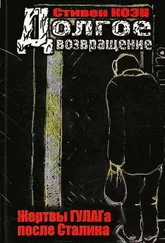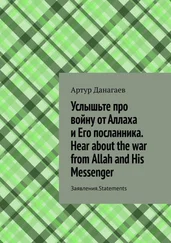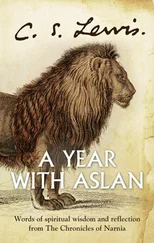Stephen F. Cohen
WAR WITH RUSSIA?
FROM PUTIN AND UKRAINE TO TRUMP AND RUSSIAGATE
With loving gratitude to Katrina, who, while “not fully” agreeing with the contents and enduring some slings and arrows, made this book possible.
THIS BOOK IS UNLIKE OTHERS I have published. Above all, it evolved during the years since 2014 when US-Russian relations were becoming more dangerous than they had ever been—and then made even worse by the allegations known as Russiagate. How this happened and what these unprecedented realities mean are ongoing themes in the pages that follow.
War With Russia? is also different in another respect. Over the years, I have written several kinds of books for other scholars and general readers—biography, narrative and interpretive political history, collections of essays and columns. The contents of this volume, however, were not originally intended to be a book. Nor were the words initially written. They began as radio broadcasts.
In 2014, the host of The John Batchelor Show , a popular nation-wide news program based at WABC AM in New York City, offered me a weekly segment on Tuesdays at 10 pm for one hour—about 40 minutes of discussion apart from commercial breaks. I had previously known John, a novelist and historian, and considered him to be one of the most erudite, intellectual, and, despite his formal role as a “conservative,” ecumenical hosts in American talk radio. I accepted.
There was an equally important consideration. I had been arguing for years—very much against the American political-media grain—that a new US-Russian Cold War was unfolding, driven primarily by politics in Washington, not in Moscow. For this perspective, I had been largely excluded from influential print, broadcast, and cable outlets where I had previously been welcomed.
Virtually alone among major US media figures, John Batchelor—whose show has some 2.7 million listeners a week across the United States as well as 5 million downloaded podcasts a month here and abroad—evidently agreed with my general perspective, or at least thought it important enough to follow. “The New US-Russian Cold War” became, and remains, the rubric of our broadcasts, though subjects sometimes range more widely.
Our procedure changed over the years. Initially, John and I broadcast live, but due to our schedules began taping the night’s discussion around 7 pm, when we already had the US and Russian “news” of the day. From the beginning, the podcast was posted the next day on the website ( TheNation.com) of The Nation magazine, where I had been a contributor for many years. In 2014-2015, because I was writing articles for the magazine, the podcast was accompanied by only a brief paragraph listing the topics of the broadcast. Beginning in January 2016, as the new Cold War grew more perilous, I began writing longer commentaries expanding on each of my contributions to the Batchelor program—I did so very quickly overnight, sometimes with little regard for literary polish—and posting them with the podcast.
Inadvertently, I became a weekly web columnist, resuming an experiment in scholarly journalism I had undertaken in the 1980s in a monthly column, “Sovieticus,” for The Nation . Then and now again, I wanted to provide essential historical context missing in news reports and analysis. Most of the weekly broadcasts and my commentaries—John and I skipped a few weeks due to holidays or scheduling problems on my part—were done in New York City, but some where I occasionally found myself on Tuesdays, from my hometown in Kentucky to Moscow.
Part I of this book is composed of four abridged articles I wrote for The Nation in 2014 and 2015. All of the articles in the Prologue and sections II, III, and IV are selected from almost 150 of my web “columns.” Except for the Prologue, written in late 2018, they appear in chronological order as an analytical narrative of ongoing events. The date under each title is the day it was posted at TheNation.com. The commentaries appear here largely as posted, though for the book I polished the language somewhat, added some clarifying information, and combined a few related commentaries into one or two.
I also made some deletions in order to avoid unnecessary repetition. But repetition of large themes and ongoing subjects became unavoidable, indeed necessary, for the purpose of my weekly commentaries—and of this book: to make accessible to general readers an alternative, dissenting narrative of what I think are among the most fateful developments of our time. Whether I have succeeded or not is for readers to judge.
Quite a few writers in mainstream publications disliked what I was writing. Their agitated responses were noted in a November 24, 2017 feature article about me in The Chronicle Review , the magazine supplement of The Chronicle of Higher Education. It was subtitled “The Most Controversial Russia Expert in America.” My scholarly work—my biography of Nikolai Bukharin and essays collected in Rethinking the Soviet Experience and Soviet Fates and Lost Alternatives , for example—has always been controversial because it has been what scholars term “revisionist”—reconsiderations, based on new research and perspectives, of prevailing interpretations of Soviet and post-Soviet Russian history.
But the “controversy” surrounding me since 2014, mostly in reaction to the contents of this book, has been different—inspired by usually vacuous, defamatory assaults on me as “Putin’s No. 1 American Apologist,” “Best Friend,” and the like. I never respond specifically to these slurs because they offer no truly substantive criticism of my arguments, only ad hominem attacks. Instead, I argue, as readers will see in the first section, that I am a patriot of American national security, that the orthodox policies my assailants promote are gravely endangering our security, and that therefore we—I and others they assail—are patriotic heretics. Here too readers can judge.
I should add that emails and letters I received over the years from listeners and readers lauding my commentaries, for which I remain grateful, far out-numbered the public slurs. But slurring any Americans who think differently about US policy toward Russia has silenced too many skeptics and contributed to another theme of this book—a new and more dangerous Cold War without any real public debate in our mainstream politics or media.
Part of the animus against me seems to be due to my criticism of mainstream media malpractice in covering Russia, yet another recurring subject in the pages that follow. As I explained in a previous book, Failed Crusade: America and the Tragedy of Post-Communist Russia (2000), readers should not mistake my media criticism for ivy-tower resentment or contempt.
On the contrary, I have long combined my vocation as a university scholar with my own contributions to mainstream journalism. So much that in the late 1970s, while I was a tenured Princeton professor, the New York Times offered me a position as one of its correspondents in Moscow. (I declined for family reasons and because I sensed that big changes in the Soviet Union were still some years away.) Moreover, my subsequent Nation “Sovieticus” column was frequently reprinted in influential newspapers. And from the late 1980s, I was for many years a prominent on-air consultant for CBS News.
In short, no professional or personal antipathies underlie my criticism of mainstream media, only my conviction that violations of their own professional standards in reporting and commenting on Russia and relations between Washington and Moscow have contributed to this new and more dangerous Cold War. Hence my weekly efforts, and now in this book, to offer readers an alternative narrative and explanation of how it came about.
Читать дальше
